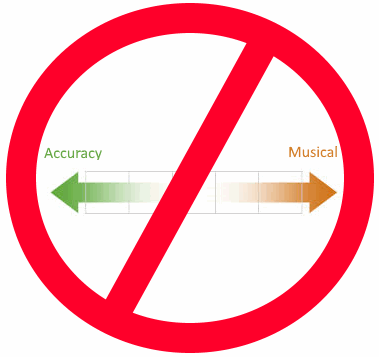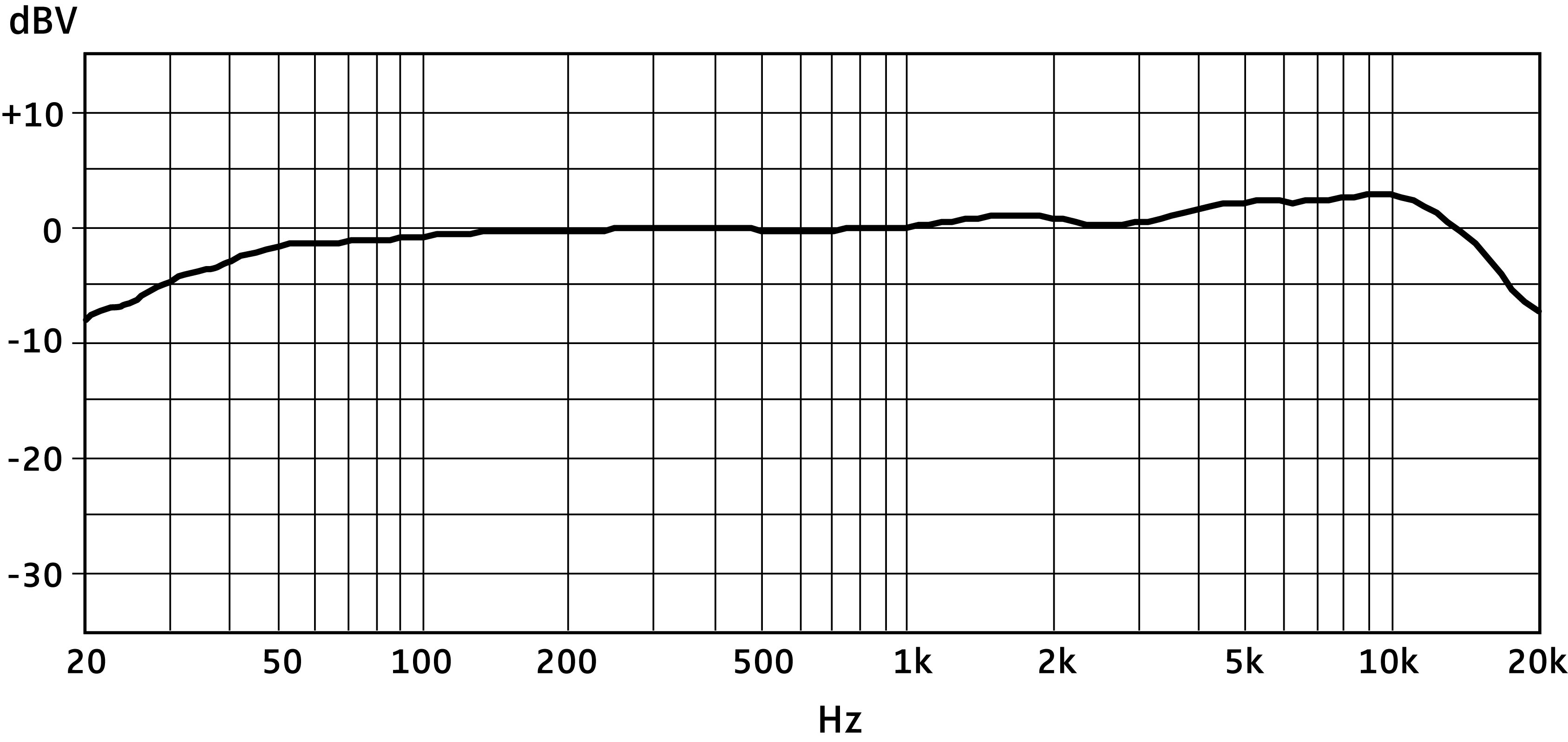Folklore #6: Accuracy vs Musicality - A New Take

Introduction
Audiophiles tend to be opinionated people, there are two big arguments that will flare up periodically on the Internet - Accurate vs Musical, and Objective vs Subjective. In this article we'd mainly be talking about the first case.
Accurate and Musical, what do the two words mean to audiophiles? According to the Stereophile Glossary, they are defined as:
Accuracy -
The degree to which the output signal from a component or system is perceived as replicating the sonic qualities of its input signal. An accurate device reproduces what is on the recording, which may or may not be an accurate representation of the original sound.
And Musical -
A personal judgment as to the degree to which reproduced sound resembles live music. Real musical sound is both accurate and euphoric, consonant and dissonant.
Unfortunately people who align themselves to the camps above do not really stick to these definitions. The long version is different people will bend these words in an attempt to fit their arguments. The short version is we simply like an argument!
In this article we'd discuss my take on why these two words are the bane of audiophiles, and the reasons to avoid using them in critical music listening.
Avoid Direct Comparisons
The reason for avoiding these two terms are simple - both are subjective assessments. Here are the Stereophile glossary terms again, but with some key points in bold:
Accuracy -
The degree to which the output signal from a component or system is perceived as replicating the sonic qualities of its input signal. An accurate device reproduces what is on the recording, which may or may not be an accurate representation of the original sound.
Musical -
A personal judgment as to the degree to which reproduced sound resembles live music. Real musical sound is both accurate and euphonic, consonant and dissonant.
Musical and Accuracy is really a proxy war of objective vs subjective, but argued under a different guise by bending the definition of the two words. Accuracy is often portrayed as objective while musical is often classed as subjective on the Internet. Note however the above definitions consider both to be subjective. Twisting one word and then turn them into a debate is pointless because the original goal posts have moved.
You may have sat on the sidelines and observe these debates, perhaps even participate in some of them. Nonetheless you should get an impression that people in the accuracy camp consider themselves "objective". Others who do not fit their opinions are cast as the musical group, something "subjective".
This form of label taunting creates an imaginary made up quasi caste system where one camp is made out to be 'better' or 'superior' to the other is. If our kids are doing this in the playgrounds, we would say it's name calling and they should stop. Yet we are doing exactly the same thing, on the Internet playground. This has got to stop.
More Reasons To Avoid Direct Comparison
Accuracy -
The degree to which the output signal from a component or system is perceived as replicating the sonic qualities of its input signal. An accurate device reproduces what is on the recording, which may or may not be an accurate representation of the original sound.
Musical -
A personal judgment as to the degree to which reproduced sound resembles live music. Real musical sound is both accurate and euphonic, consonant and dissonant.
Above definitions do not imply musical is better (or otherwise). That is because the two definitions were never meant to be compared with in the beginning. Superiority of one over the other is subjectively applied by people to people in the Internet discussions.
Musical simply has a broader definition to Accuracy, and musical implies accuracy - Real musical sound is both accurate and euphoric, consonant and dissonant. So in simple terms, musical is accurate and more. Also accurate do not imply musical, the narrower scope of it's definition does not allow the inverse to hold true. Musical implies accurate, accurate does not imply musical. Period.
The Internet is making this out to be an "Apple vs Orange" debate, but it's really a "Smaller Orange vs Bigger Orange" debate. And "smaller" vs "bigger" are relative comparisons because these are still subjective assessments.
In my opinion, a sound system should never be simplified into a "musical" system or an "accurate" system. Or a scale from one to the other. Doing so is illogical. The descriptions are so subjective they lose meaning - musical vs accuracy are mere constructs and any Tom, Dick or Harry have their own opinions, assessments and ideas.
It's akin to asking people to describe to you how long a piece of string is. This is a waste of time as there is no context at all when discussion length - what is the intent, or purpose of this length? With no firm objectives discussions are simply going around in circles with no end in sight.[adsense:]
[pagebreak]
My Own Definitions
Everybody is applying their own twist to the two terms, and I am guilty of the same thing. This next section I am offering my own take on these two terms. Note also I am not going to compare one against the other, or apply some sort of sliding scale (i.e. as you more away from musical, it becomes accurate or vice versa).
My Take On Accurate
Accuracy in physics differs from the audiophile definition. Audiophile version of accurate borrows from the physics world, but with a twist - there is no valid reference.
In Physics, accuracy is defined as error of measured value versus the true value. This true value is what we call the reference. This is an excellent XKCD comic in so many ways:

In this example the reference is 130, so 129 is not far off. Given a known reference (true value) of 130, we know 129 is approximately 0.75% off (so about 99% accurate when compared to the reference). In most typical measuring instruments, we often see a qualification e.g. +/- 10%. This metric is the degree of accuracy. The lower the number, the higher the accuracy.
Using the XKCD analogy, accuracy is now about how good your car's speedometer is at replicating the readout of the radar gun at the same time. The better your speedo can track with the speed gun, the more accurate your speedometer is.
In the case of a CD, it is like a speed gun taking 44100 speed readings a second. Now your your sound system is like a speedometer diligently displaying the speeds at that same pace, the closer it matches the readout of the speed gun, the more accuracy it gets. This is akin to focusing on the speedometer while driving and totally miss the dangerous hazards on the road.
For me it is important to not expand accuracy to include everything- as an example accuracy in recreating the human voice does not necessarily imply it will be accurate in recreating the Cello.
People relying on measures to provide their idea of accuracy may prefer a "null test". This involves comparing the "original input" - aka the source material (e.g. a CD) against some measured output. Invert one and apply it to the other to get a result. In a perfect world the two wave forms would completely cancel each other out and thus result we obtain is 0s all around (flat line).
A variant of this idea is now championed by the measuring audiophiles - a flat 20 Hz to 20 kHz response. The flatter the curve, the more accurate the sound system is.

Or is it? It depends on who you ask, and what accuracy you're looking for. Accuracy without reference is pointless, personally I like to term accuracy in terms of realism in recreating voices, instruments, ambiance, etc. For me it is important to tie accuracy to a known source - accurate of or to what. It all boils down to the idea of accuracy you're interested in - accuracy to audio, or accuracy to measuring instrument.
What Is Musical Then?
To me musical transcends definition, explaining what musical is like defining humanity itself. The boundaries are so broad it's hard to pin it down with words. My idea of musical differs a lot from the official definition. To give you an insight into what my idea of musical is, I again bring you the XKCD comic:

Here the driver wasn't concentrating on the speed at all. He was enjoying the act of driving before he was stopped by the cop to check the speed (anybody who posted in audiophile forums and to be told you are doing it wrong should appreciate the parallels here).
Notice we have no idea what the units are, it's just a number. When we see the word "fast", the cop and a car - we automatically hold preconceptions that the driver is speeding (i.e. it's 130 km/h or 130 mph). This is a valid assumption but we do not have a proper context (i.e. any information you can think of that isn't contained in that 3 panels is actually information based on your previous experiences).
It is plausible (under different conditions) that when the cop say "Fast", he actually meant how slow he is driving. Not convinced? How about the power of suggestion (be it from me or from the author):
- Is the person wearing a hat really a police officer?
- I implied a radar gun. But is it really? For all we know the guy in the hat made up the word 130.
This comic can be interpreted in so many ways. When we are not given all the information, our brains are capable of filling in the blanks and voids from our past experiences. My idea of musical is the ability to see the multiple scenarios and find the humour. To me musical is about self - one man's music is another man's noise. And thus music brings different things to different people. This is because we:
- have different life experience
- have different expectations
- have different state of mind
- are not the same
This may by why the difficult idea of audiophile accuracy don't sit well with me. This 'ideal' state of a flat 20 to 20 to me is conformity. My Ubuntu distro is called Snakeoil, you already know I don't conform to accepted social norms!
Conclusion
So there you have it. Same comic - it's accurate, it's musical, it's both, it's everything, and it's also nothing. There is no right or wrong, us versus them. The focus should be if you enjoy music, and finding ways to enjoy that music. In other words, understanding how you interpret and enjoy music is an important skill to learn in this hobby. And can you improve this skill by looking at accuracy and musical under your own light.

Snakeoil OS is the only operating system giving you the freedom and power to set your own tone. Linux gives you complete complete freedom choose and modify anything, everything or nothing. Choose your own:
- Computer hardware (RAM, motherboard, CPU, etc)
- Linux kernel
- Audio device (Audio sound card, USB DAC)
- Audio player (MPD, Squeezelite, XMMS and the list is growing)
- and more
Gluing all above together via the SnakeoilOS web app, you can define and refine how your listen and enjoy music to get the most pleasure out of this hobby.


Add new comment